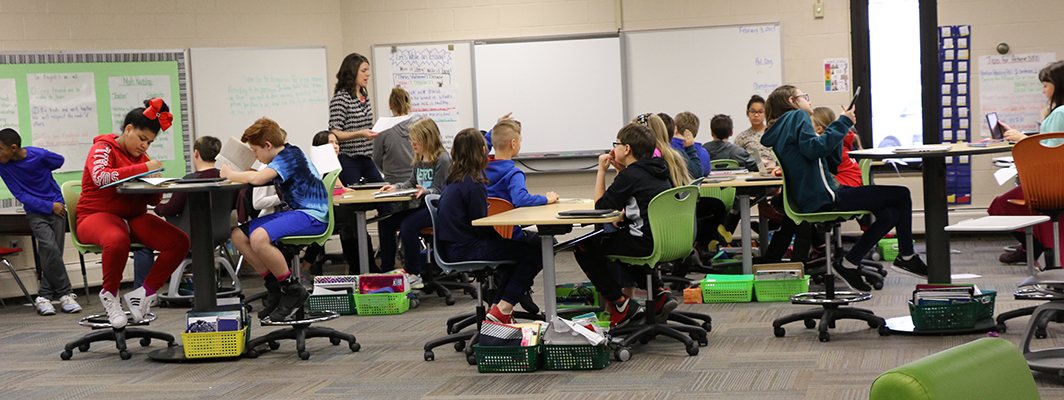
When my district started to explore this approach five years ago, we knew that before we could even begin to understand how to implement competency-based learning, we had to understand why it was important. This meant we had to understand our predispositions and biases we associate with learning, otherwise referred to as our teaching “mindset.”
Juab School District recommended that teachers read the book Mindset by Carol Dweck to get comfortable with the idea of “growth mindset” before we even started discussing how to change our practice, expectations, or curriculums in alignment with competency-based learning.
Personally, this required some hard change on my part because as a recovering perfectionist, it was really difficult for me to admit I’m not always right, or perfect, or anything else that a fixed mindset reiterates. A growth mindset allowed me to learn that failure can be productive and growth comes from ongoing reflection and practice, not a one-and-done attempt.
So last year, when my district revamped their professional learning strategy with a competency-based focus, micro-credentials naturally played a big part. Since personalized learning is an educational priority for my district, it only makes sense that this same opportunity would be given to us, the teachers leading those personalized learning experiences for students.
I was drawn to micro-credentials because they involve a combination of two of my favorite things: learning and proving I know what I learned. I loved how I could target areas in my practice that I considered weak, and I could highlight my strengths through a demonstration of competency. What an incredible way for teachers to learn and grow professionally. Earning micro-credentials is also a good way to show we practice what we preach: if we think competency-based learning is the way to best support students, then teachers need to be supported in the same way.
My micro-credential journey started with exploring the Connecting and Sharing with Networks micro-credential. Initially, I was just curious to see what a micro-credential even looked like. What I ended up finding were intellectually engaging resources, research-based best practices, and valuable opportunities for reflection. I was sold.
Since then, I’ve gone on to earn a handful of other micro-credentials, with my eye on a few more.
Going into this school year, we were asked to submit a teacher growth plan by assessing our practice, identifying weak points, and specifically planning what we could do to improve. I had an inkling what my biggest weakness would be (teacher leadership and collaboration). So my goal for this year is to not shy away from leadership opportunities and focus on this growth opportunity in my practice. My luck would have it that there is a micro-credential perfectly suited for this, Understanding Your Leadership Strengths.
I truly believe micro-credentials are a wonderful opportunity for teachers to learn, improve their practice, engage in reflective pedagogy, and demonstrate competency. Micro-credentials allow teachers to practice competency-based learning for their own classroom and become better, stronger teachers as a result – they definitely did so for me.
Learn more about how micro-credentials are supporting other educators here.